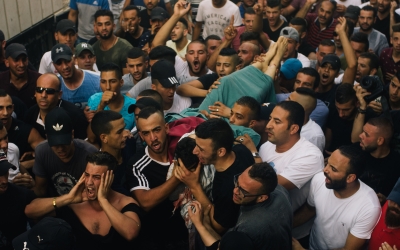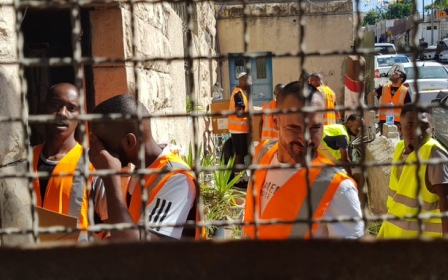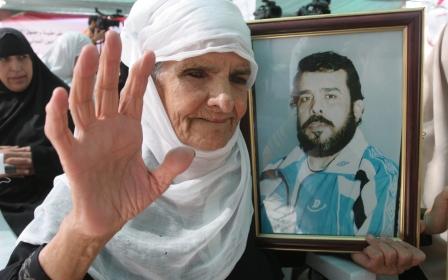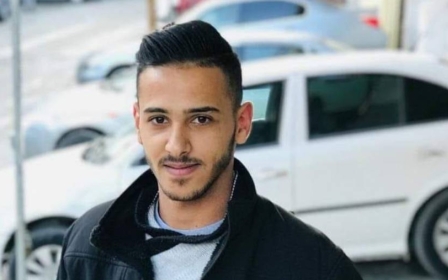Family of Palestinian who mysteriously died in Israeli prison suspects 'foul play'
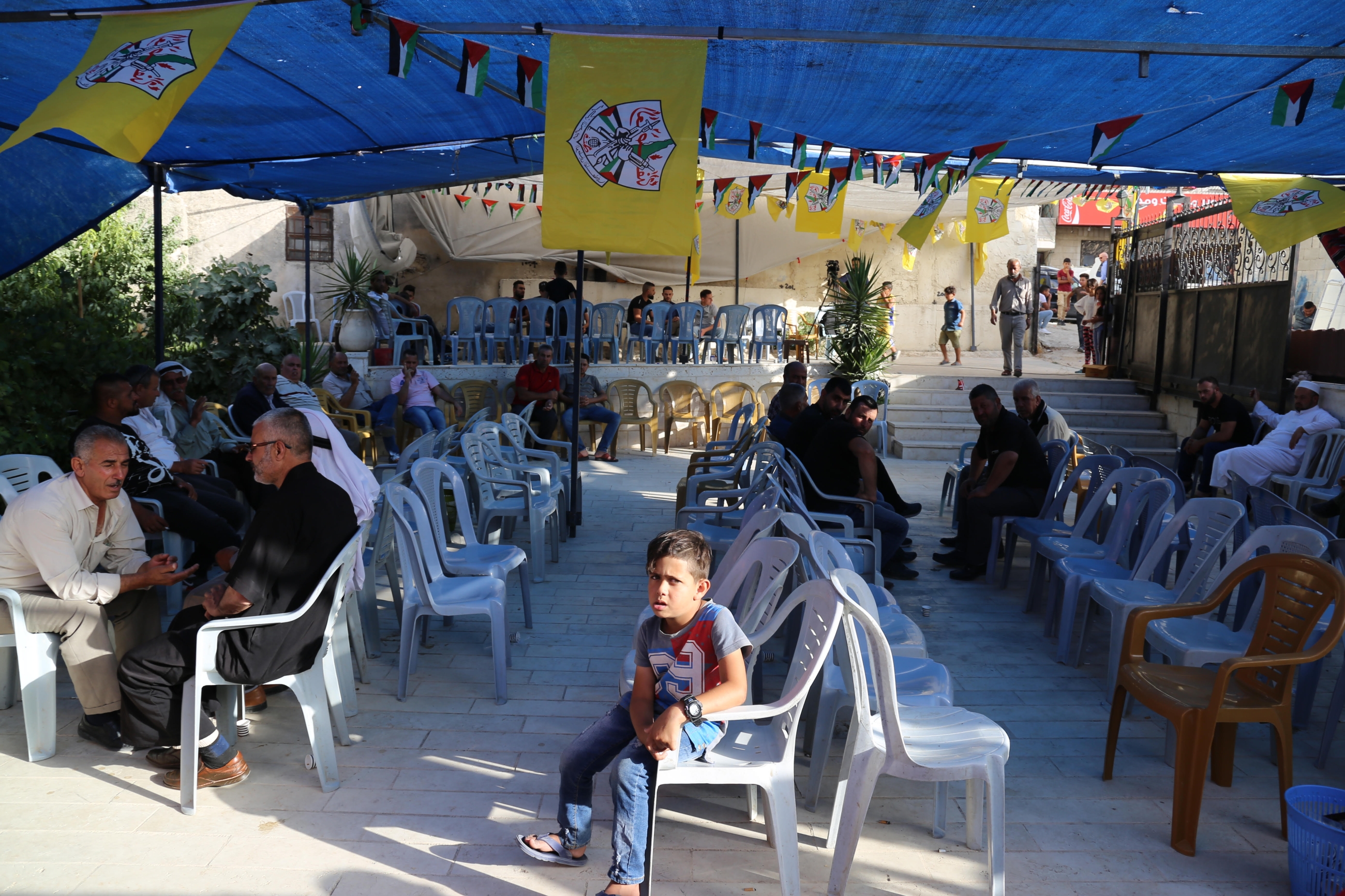
When 50-year-old Mohammad Taqatqa woke up early on Tuesday morning to a call from his nephew's lawyer, he answered the phone hoping for good news.
It had been exactly four weeks since 19 June, when Israeli forces arrested 31-year-old Nassar Taqatqa, and no one - not even his lawyer - had managed to arrange a visit to see him.
But the words that were spoken on the other end of the line were far from anything Mohammad was expecting.
His nephew was dead. He had died in a solitary confinement cell at Israel's Nitzan prison, the lawyer told Mohammad.
"All I was thinking was, how am I supposed to tell this news to my brother," Mohammad, a construction worker from the southern occupied West Bank village of Beit Fajjar, told Middle East Eye.
New MEE newsletter: Jerusalem Dispatch
Sign up to get the latest insights and analysis on Israel-Palestine, alongside Turkey Unpacked and other MEE newsletters
Nassar's family says they do not know why Nassar was detained, and have denied that their relative was affiliated with Hamas - a common charge levied against Palestinians by Israel. Israeli media, meanwhile, have quoted Israeli authorities as saying that Nassar was suspected of the vague charge of "activity against the state".
The official cause of Nassar's death is still unknown, but as the news of his passing spread, several conflicting reports began circulating in local Palestinian and Israeli media.
Some reports alleged that he died while being held in the prison's psychiatric ward. Others claimed he had a host of health issues and was medically neglected by Israeli authorities, resulting in his death. Another alleged he had a stroke.
None of the stories make sense to his family.
Nassar, a construction worker like his uncle, was a "strong and perfectly healthy young man" who had never been hospitalised in his life, his family told MEE.
"They took him from us when he was healthy, and they are bringing him back to us dead. How can this be?" Mohammad asked, racked with grief.
'Foul play'
Nassar's lawyer told the family that prison authorities on Tuesday said Nassar had been taken to a hospital on Saturday and brought back to his solitary confinement cell that same day. But the family has not been told why Nassar was seen by doctors just a few days before his death.
"Then, the prison authorities said that when they went to check on Nassar in his cell this morning, he was unconscious. So they took him to the hospital, where he was pronounced dead," Mohammad told MEE, recounting the details of the conversation with his lawyer.
Mohammad said he knew one thing for sure, when Nassar was arrested, he was in good health.
"I just want to tell you now, he has never had any health problems as the Israelis say. He was a normal, healthy young man," he said. "Why were they taking him to the hospital and not telling anyone about it until after his death? And after a month of 'interrogations'? It's all very suspicious."
One of the contributing factors to the family's suspicions, Nassar's uncle noted, is the fact that his nephew’s arrest was "extremely violent".
"When they came to arrest Nassar in the middle of the night, the soldiers were so aggressive," Mohammad said.
'They arrested him and put him in their custody, and it was their responsibility to take care of him'
-Mohammad Taqatqa, Nassar's uncle
"They were throwing Nassar around, screaming at his parents and sisters, ransacking the house, and breaking furniture."
According to Mohammad, it was "one of the most violent arrests" the villagers of Beit Fajjar had ever witnessed.
"I remember at the time, after he was taken, we said that by the way the soldiers handled the situation, it looked like Nassar was going to have a hard time in jail," he recounted. "But we never imagined that they would kill him."
Mohammad said that as far as the family is concerned, Nassar was executed.
"They executed him in cold blood," he said. "He posed no danger to them. He had no guns, not even a stone to throw. They arrested him and put him in their custody, and it was their responsibility to take care of him."
Abdullah Zghari, a spokesman for the Palestinian Prisoners’ Society (PPS), told MEE that his organisation does suspect "foul play" was involved in Nassar's death.
Nassar's death has caused anger among fellow Palestinian prisoners who refused meals in protest on Tuesday, official Palestinian news agency Wafa reported. As a result, the Israeli Prison Service (IPS) was reportedly on high alert and prevented lawyers from accessing Palestinian prisoners on Tuesday.
'All too common'
When his organisation was informed that Nassar had died, Zghari said that while devastated, he was not surprised.
"Palestinian prisoners are always held in terrible conditions," Zghari said. "Their rights are constantly violated from the moment they are arrested, all the way through interrogations, court proceedings, etc."
Zghari highlighted overcrowding, the excessive use of solitary confinement, frequent violent prison raids from Israeli authorities, and harassment from prison officials as some of the most common "forms of abuse" used against Palestinian detainees.
"These solitary confinement cells, like the one Nassar was held in, are absolutely horrendous. Even if you are in perfect health - which we suspect he was not due to beatings - the pressure of being in solitary can rapidly deteriorate someone’s physical and psychological state," Zghari said.
When prisoners do become sick, or enter prison with pre-existing conditions, Zghari said detainees are often medically neglected, and are only given adequate medical attention when they are "on the verge of death".
"The killing of Palestinian prisoners by Israeli authorities, through direct physical abuse or medical neglect, is all too common,” he said.
According to Palestinian prisoners rights organisation Addameer, some 220 Palestinians have died in Israeli custody since 1967 - 60 of whom are believed to have died due to medical negligence, and 73 others as a result of torture.
“As long as Israeli authorities continue to act with impunity, this number will continue to rise,” Zghari said.
Kept in the dark
The Taqatqa family's struggle to get information about the circumstances of Nassar's death is not dissimilar from their struggle to find out details about his detention.
Since he was arrested, the family has been barred from contacting Nassar directly and has relied on his lawyer for information.
But Nassar's lawyer said he too was prevented from ever seeing his client.
"The lawyer could never give us any updates because he wasn't ever allowed to visit him, not even a single time,” Mohammad Taqatqa told MEE.
Israeli prison authorities "never gave a straight answer" about Nassar’s condition or his whereabouts, he said.
"We had no clear information,” Mohammad continued.
When the family's lawyer pushed to visit Nassar, Mohammad said "the Israelis kept telling the lawyer that Nassar was still in 'interrogations', and no prisoners are allowed visitors during interrogation proceedings".
"It is not uncommon for Israeli authorities to prolong a detainee's interrogation procedure and prevent them from seeing their legal council," PPS's Zghari said.
"While this practice is technically illegal under Israeli [civil] law, the military law that Palestinians [in the West Bank] are subjected to allows Israeli authorities to use 'security concerns' as an excuse for using such tactics" Zghari said.
A body and an autopsy
As Nassar's family awaits answers regarding their son's death, another crisis looms. It is unclear if Israeli authorities plan to release Nassar's remains.
Currently, the remains of at least 253 Palestinians are kept in secret Israeli burial sites and morgues known as "cemeteries of numbers".
But Nassar's family wants his body, not just for closure, but an investigation.
The family has reportedly been in touch with Palestinian authorities and prisoners' rights groups to demand that an autopsy be performed on Nassar’s body with the presence of his lawyer and trusted family members.
“We want to know what happened to our son. We are demanding answers,” Mohammad Taqatqa said, the frustration rising in his voice.
He insisted that the family was sure that Nassar was tortured, and were simply seeking an autopsy as confirmation of what they already suspected.
“We know who killed him, and why he died. But we want this as proof, to show the world what the Israeli occupation did, and the crimes they committed. We will not let them cover this up.”
Middle East Eye delivers independent and unrivalled coverage and analysis of the Middle East, North Africa and beyond. To learn more about republishing this content and the associated fees, please fill out this form. More about MEE can be found here.




